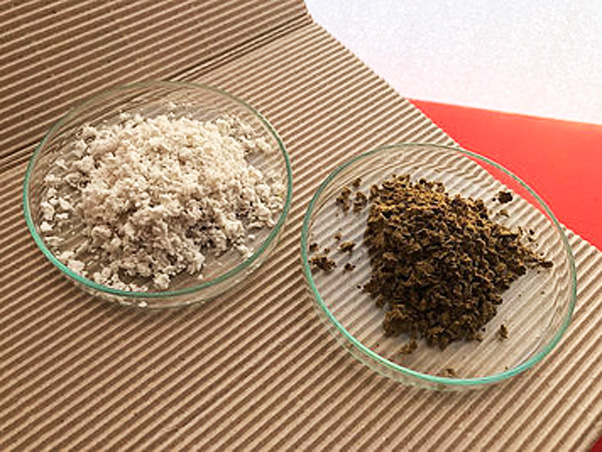Zelfo Technology Engineers a Future for MFC in Containerboard Packaging
![]() Print this Article | Send to Colleague
Print this Article | Send to Colleague
Zelfo Technology (ZT), Gemany, has reached an important milestone in its technical development program and will open an engineered fiber production and R&D unit in Schwedt, Northern Germany.
The company engineers cellulosic and ligno-cellulosic fibers from a wide range of sources including industrial, agricultural, and horticultural waste streams to impart user specific fiber properties, including a high degree of defibrillation, thus multiplying the binding capability of the material by a factor of several thousand.
The engineered fiber products offered by Zelfo Technology include Micro Fibrillated Cellulose (MFC), which has been a widely talked about subject in recent years, resulting an incredible amount of scientific research and patents being registered. Such intensive activity in MFC has resulted as pulp producers look to find new uses for their prime product, cellulose, and because its foreseen applications are extremely wide in many industries. Zelfo Technology is taking the subject one step further in producing controlled mixtures of macro, micro, and nano-scale fibers using a patented production process, thereby dramatically extending the range of uses.
Zelfo Technology has been a pioneer in this kind of fiber engineering since 2010, focusing primarily on upgrading waste sources. The company is now committing to developing and producing packaging based fiber additives with, for example, immediate applications in the liner and fluting sectors.
Indications are that the use of a percentage of engineered corrugated container waste (OCC) can allow liner and fluting producers to make significant reductions in grammage, without negatively impacting the end-product performance.

"This means raw material savings, but this also and more importantly means a reduction of the weight of the final product, which has far more sustainable implications throughout the product’s lifecycle" said ZT CEO Richard Hurding. Furthermore, engineered fiber can carry more filler and performance enhancing chemistry, etc.
ZT is concentrating on the containerboard market as it is primarily driven by increasing industrial and manufacturing activity. Better transportation and shipment facilities, improved durability and strength of container boxes, as well as safety and aesthetics of the packaging are anticipated to be major drivers of the market. The growing demand for lightweight and innovative packaging is also driving the global containerboard market, as eco-friendly and recyclable product specification obtained due to containerboard are forcing manufacturers and industries to use corrugated boxes.
Strong, lightweight, and cost effective containerboards are anticipated to be the major opportunity criteria for the developing global containerboard market. "Forming strategic tie-ups with container box producers to produce industry specific products to penetrate in new application sectors is considered to be a major opportunity for the global containerboard market, and Zelfo Technology’s Engineered Fibers allow such opportunities to become a reality, not in the future, but today," said ZT’s Technical Director Trevor Dean.
"Imagine the impact of grammage reduction on this more than 200 billion sq. meter market," he emphasized. This figure comes from 2013 and is expected to keep growing in the years to come.
The Schwedt location "will allow ZT to be part of the pulp and paper ecosystem," continued Hurding, "because we will be operating alongside the EMFOS GmbH (European Moulded Fibre Operation Services) independent packaging R&D Center and are situated in-between the two Leipa Paper facilities, which combined form the biggest paper and packaging production site in Germany." ZT will continue to offer tailor-made developments to its clients both with cellulose and ligno-cellulosic materials.
The throughput with OCC has now reached 1.5 metric tons per day, thanks to the latest process developments patented in the summer of 2016, and this therefore allows ZT to transform waste carton board into high quality fibers for reinforcement and binder applications. Sample quantities are available for testing and pre-industrial quantities can be supplied.
The same type of throughput can be reached with many agro-materials and agro-wastes, giving growers the possibility to turn a waste disposal cost into a potential revenue while contributing to circular economy principles. This is particularly well illustrated by the partnership ZT has with bio-packaging company Bio-Lutions GmbH.


